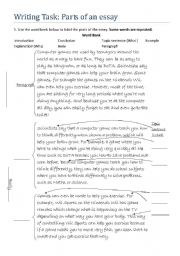
|
Writing: Parts of an Essay I
Use this to introduce students to the structure of an essay. You can then apply this to other essays given. They may use different words but they use the same structure.
Level: advanced
Age: 13-17
Type: worksheet
Downloads: 110
|
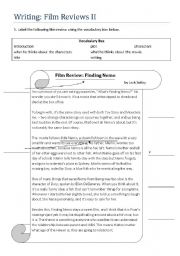
|
Writing: Film Reviews II
This worksheet is designed to go with the movie Finding Nemo. The students read a sample review and analyse it using the vocabulary box. After a discussion as to what goes in each paragraph, the students watch the movie and answer some simple movie comprehension questions. From this information, they then write their own film review using the scaff...
Level: elementary
Age: 10-14
Type: worksheet
Downloads: 72
|
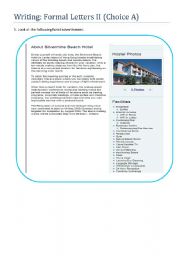
|
Writing: Formal Letters
This simple worksheet presents models of enquiry letters and letters to the editor from which the students can write their own. This is meant to be a follow-on activity after introducing formal letters.
Level: elementary
Age: 12-17
Type: worksheet
Downloads: 53
|
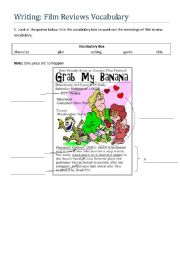
|
Film Reviews I
This is the first of two worksheets designed to step elementarty-level students through the process of writing a film review. The first step is to learn some film terminology through the mock-up film poster. (It was taken from another resource also found on here - I forgot the name of the file I took it from but thank you in advance).
The seco...
Level: elementary
Age: 10-14
Type: worksheet
Downloads: 46
|
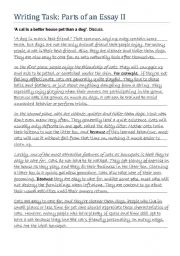
|
Writing: Parts of an Essay II
This follows on from the Parts of an Essay I. It is another essay about cats and dogs. Students are to discuss the first page. Then questions break down the essay even further. You can then make another essay if you like.
Level: advanced
Age: 12-17
Type: worksheet
Downloads: 39
|
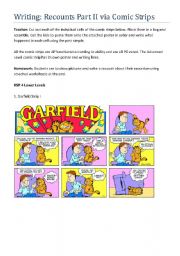
|
Writing Recounts Part II
Students take a comic strip. They cut it up and stick it into the boxes provided. Using the word bank, they can make sentences underneath each box.
Then, they simply rewrite the sentences into one cohesive text and you have an elementary/beginner level recount.
Level: elementary
Age: 10-12
Type: worksheet
Downloads: 31
|
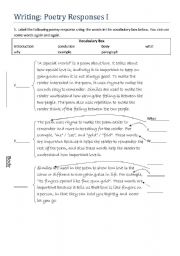
|
Writing: Poetry Responses I
Students learn the structure of a poetic response through the gap-fill vocabulary exercise. Then afterwards, students identify poetic devices and use them as a basis to complete a scaffolded poetry response.
Level: elementary
Age: 12-17
Type: worksheet
Downloads: 17
|
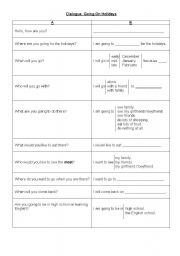
|
Dialogue: Going On Holidays - Low Elementary Level
This is a structured dialogue which you give low-level elementary students. It is about their future plans for the holidays.
Split the class into lines - A and B. You need even numbers to do this. Person A asks questions, person B answers them. Then swap A and B around. You ideally use this as a starter or plenary.
Level: elementary
Age: 14-17
Type: worksheet
Downloads: 16
|
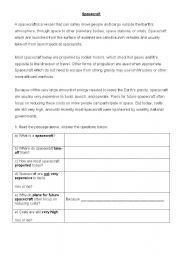
|
Spacecraft - Low-Level Elementary Comprehension
This worksheet has two short comprehensions in it.
The first one has key words put in bold so that the students know what to look for. The second one has no keywords but is very short so the keywords are obvious.
If the students are weak in reading, make sure they know how to search for the keywords in the passage by looking for the word in ...
Level: elementary
Age: 14-17
Type: worksheet
Downloads: 13
|
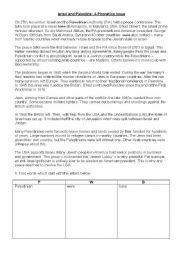
|
Israel and Palestine - A Phonetics Issue
Simply get the students to identify all the words which start with the letters in the document.
Pronounce the letters, get the students to repeat, then go through all the words they find. They will absorb at least symbol-sound association explicitly, which is what dyslexic students find very hard to do.
Level: elementary
Age: 14-17
Type: worksheet
Downloads: 9
|